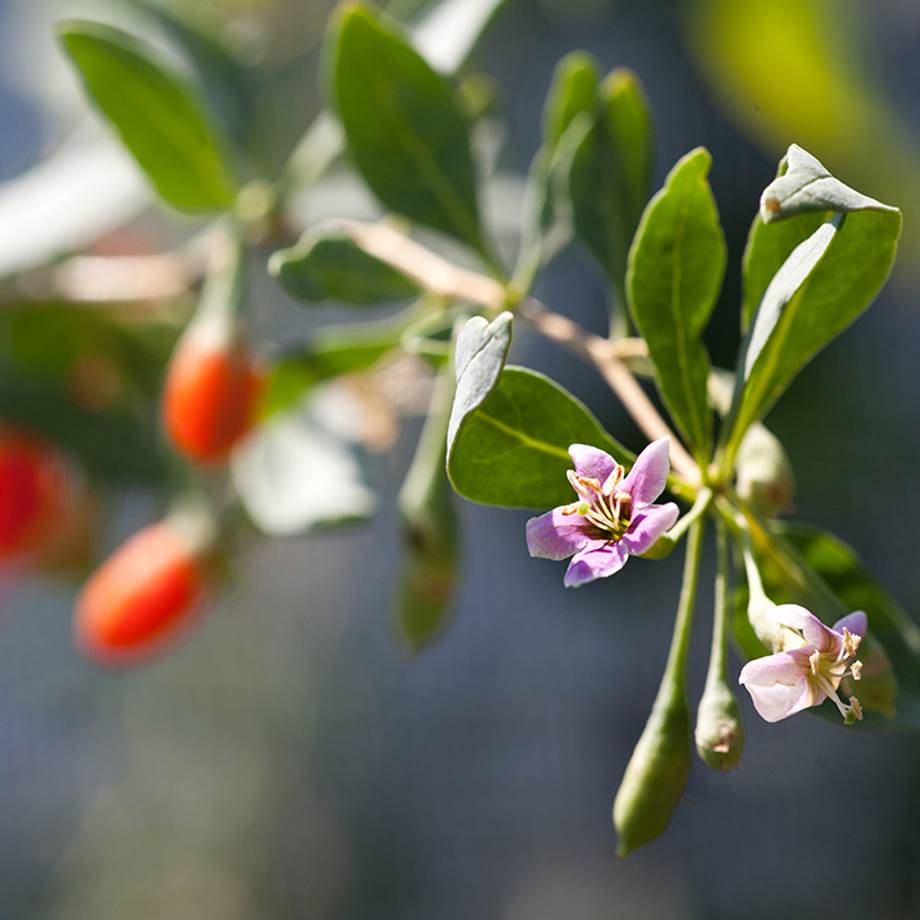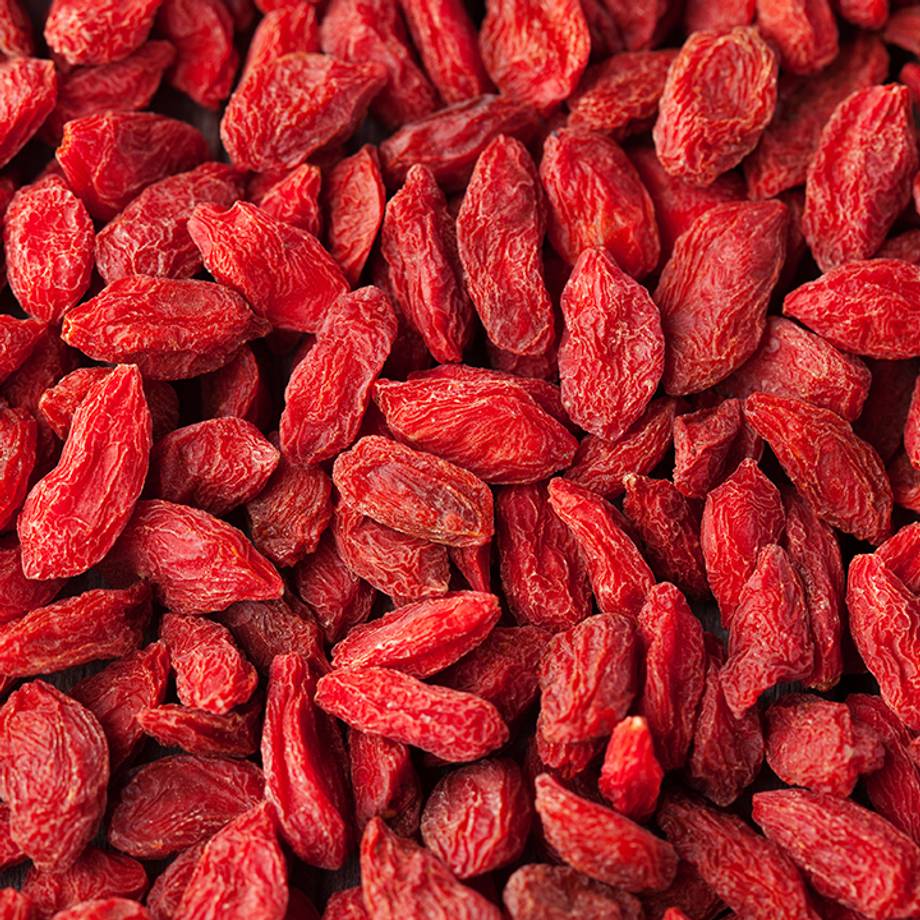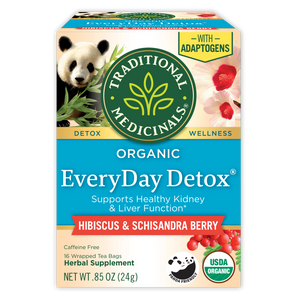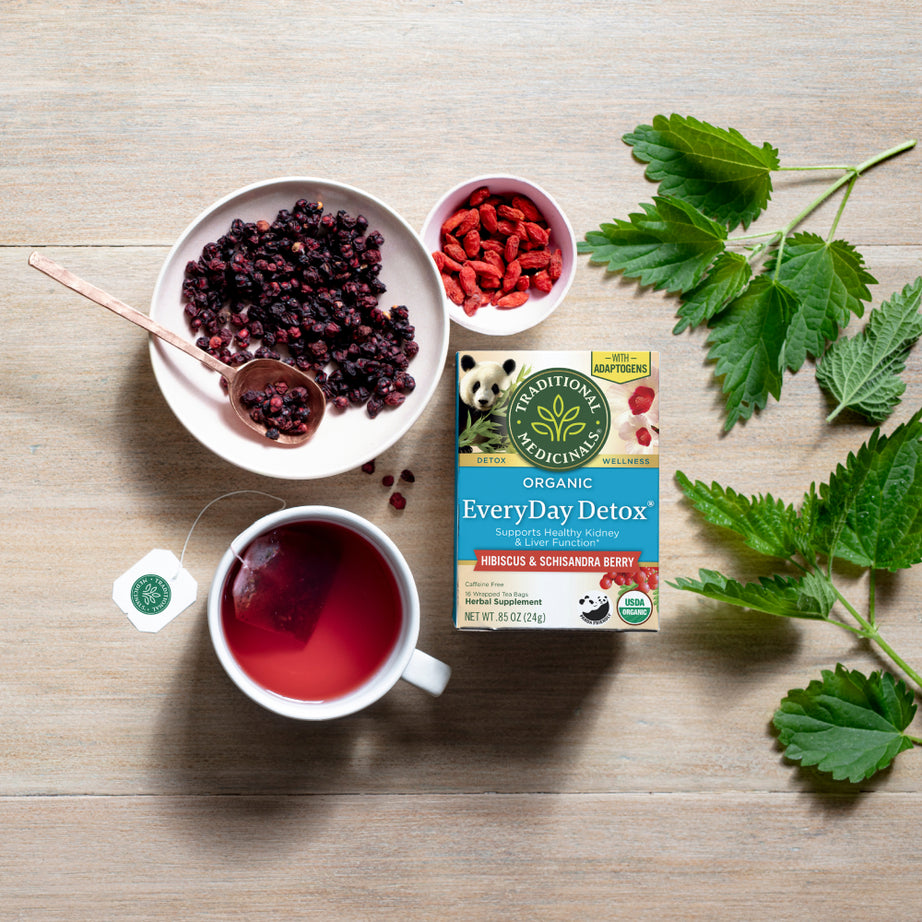
More Goji info
TCM superfood and “enhancer of life.”

Bright, orange-red goji berries have been used for centuries across Asia and in Traditional Chinese Medicine (TCM) as a nutritive tonic for the liver, kidneys, eyes, and lungs.* Energetically, this herb is considered to be a yin toner that’s sweet in taste and neutral in application. It’s a fundamental herb in TCM and is commonly used to enhance the quality and length of life.
Containing carotenoids and flavonoids, this fruit is also an antioxidant with the ability to boost overall health by supporting the body’s defense systems.* Appropriately named a “superfood,” this tart and semi-sweet fruit contain vitamins A and C, riboflavin, potassium, iron, magnesium, copper, and zinc. This is likely why it’s traditionally consumed beyond herbal formulas, and infused into everyday Chinese recipes like soups, stews, porridges (a.k.a. congee), juices, wines, and liqueurs.

While sometimes called “lycium” due to its Latin name, its common name in Chinese is gou qi zi or “wolfberry.” Gou translates to dog or wolf, and some say it gained this name because of farmers witnessing the animals eating the berries. Li Shizhen, a famous Chinese herbalist and acupuncturist of the 1500s, recorded that it may be from a Taoist text where it says a 1,000-year-old goji took on the shape of a dog, so it was named gou.
The four-thousand-year-old oracle bone script is currently the earliest known systematic form of Chinese writing , and some say “gouqizi” was included, while others remain unsure if this is in reference to the plant or a name of something else. It was also recorded in a formula taken by the first emperor of the Qin Dynasty (259 BC–210 BCE). It was historically used by at least a dozen of China’s 55 ethnic minority groups and is still one of the most popular herbs and medicinal foods today.

Not only do these small fruits look like ripe cherry tomatoes, but they’re also related. Goji is a nightshade, and a part of the Solanaceae family, along with potatoes, eggplants, and peppers. This woody, vining shrub generally grows between three to 3-5 tall, though they can reach nearly 12 feet in their native habitats. While these berries do well in most of the U.S.—in Hardiness Zones 2-7—they’re native to China, where they’re grown in abundance for the herbal marketplace.
Goji grows best in highly fertile soil that’s well drained. It thrives with plenty of sunshine and will begin to fruit two years from seeding and bear full yield in four to five years. Generally, fruit comes in the mid-summer and is best picked by hand, to avoid bruising.
Products that contain Goji
EveryDay Detox® Hibiscus & Schisandra Berry Tea
Additional Information
Legal Disclaimer:
The information and other content in this article are designed to provide a general overview of the botany, cultural history, and traditional uses of this herb. It is not intended and should not be construed as health advice. Every person is unique and you should consult with your health care provider before using any herbal product or supplement.
Become an Herb Nerd & Get 10% Off!
Herbal tidbits, DIY plant projects, exclusive discounts, and recipes to follow the seasons delivered straight to your inbox.



